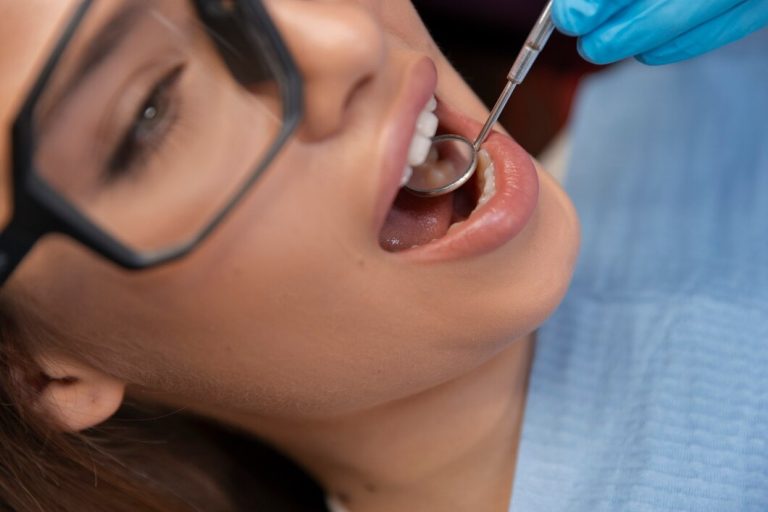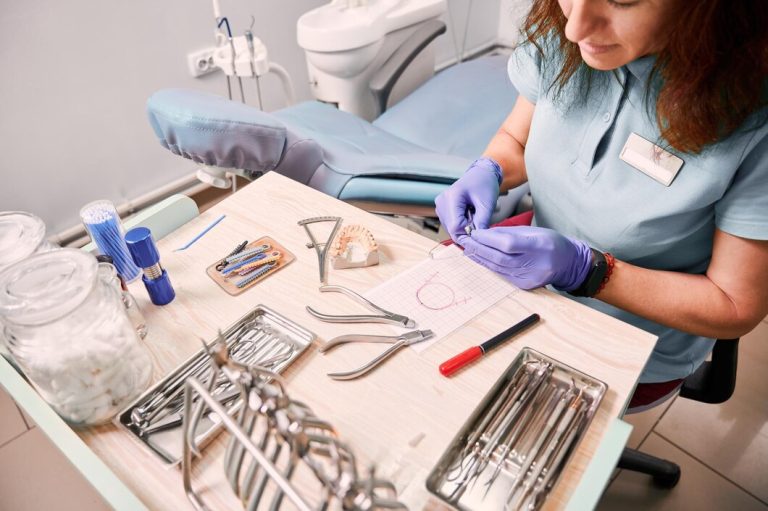Gum disease, also known as periodontal disease, is a common oral health issue that affects millions of Americans, often progressing silently and causing irreversible damage without timely intervention. Gingivitis, the initial stage of gum disease, is characterized by inflammation and bleeding of the gums. While gingivitis is reversible with proper dental care, if left untreated, it can progress to periodontitis, resulting in severe gum and bone damage, and ultimately leading to tooth loss.
At Colorado Gum Care Northglenn, CO, we understand the importance of addressing gingivitis at its earliest stages to prevent further oral health complications. That’s why we have created this comprehensive guide to help you recognize the signs and symptoms of gingivitis, discover effective prevention strategies, and understand the various treatment options available to restore and maintain gum health.
In this guide, we’ll explore factors that contribute to the development of gingivitis and discuss the crucial role that proper oral hygiene, routine dental checkups, and a healthy lifestyle play in preventing and treating this common condition. Whether you’re currently facing gingivitis or seeking ways to prevent its development, following the advice and recommendations provided by our expert team at Colorado Gum Care Northglenn, CO will ensure the healthiest possible outcome for your gums.
1. Recognizing the Signs and Symptoms of Gingivitis
Detecting gingivitis early on is crucial to prevent its progression to more severe forms of gum disease. By staying vigilant for the following signs and symptoms, you can take prompt action to address gum inflammation before it causes irreversible damage:
- Red, Swollen, or Tender Gums: Healthy gums should be firm, pink, and tight around your teeth. Inflamed gums may appear dark red, swollen, and tender to touch.
- Bleeding Gums: If your gums bleed during or after brushing, flossing, or eating hard foods, it may indicate the presence of gingivitis.
- Persistent Bad Breath: Chronic bad breath, or halitosis, can be a sign of increased bacterial activity in your mouth, often linked to gum disease.
- Gum Recession: Receding gums, or the appearance of elongated teeth, can result from prolonged inflammation caused by gingivitis.
- Changes in Bite: Changes in the way your teeth fit together when biting or chewing could indicate gum or bone loss due to gum disease.
2. Effective Prevention Strategies for Gingivitis
The key to avoiding gingivitis and its potential complications lies in maintaining a consistent oral care routine and a healthy lifestyle. Consider implementing the following preventive measures to protect your gums and ensure long-lasting oral health:
- Proper Oral Hygiene: Brush your teeth at least twice a day with a soft-bristled toothbrush and fluoride toothpaste, ensuring you clean all surfaces of your teeth and gums. Floss daily to remove plaque and debris from between your teeth and along the gumline.
- Regular Dental Checkups and Cleanings: Schedule dental visits at least twice a year for professional cleanings and routine examinations. Regular appointments allow your dentist to monitor your oral health, identify signs of gingivitis, and provide timely intervention if needed.
- Balanced Diet: A diet rich in vitamins and minerals, particularly those that support gum health, such as vitamin C and calcium, can help prevent gingivitis. Limit your intake of sugary or acidic foods and beverages that can contribute to tooth decay and gum disease.
- Tobacco Cessation: Smoking and tobacco use increase the risk of gum disease by impairing your immune system and reducing your ability to fight off infection. Quitting or reducing your tobacco consumption can significantly improve your gum health and overall oral well-being.
3. Treatment Options for Gingivitis
The good news is that gingivitis is reversible with proper care and treatment, and your dentist can recommend several options to heal and restore your gum health:
- Dental Scaling and Root Planing: This non-surgical procedure involves deep cleaning of your teeth and roots below the gumline, removing plaque and tartar build-up that contributes to inflammation. Scaling and root planing can greatly improve your gum health and prevent the progression of gum disease.
- Antibacterial Therapy: Depending on the severity of your gingivitis, your dentist may prescribe an antimicrobial mouth rinse or topical antibiotic gel to eliminate the harmful bacteria responsible for gum inflammation.
- Improved Oral Care Routine: Your dentist may recommend adjustments to your oral care habits, such as using an electric toothbrush or specialized flossing tools, to improve plaque removal and promote gum healing.
- Ongoing Dental Care and Monitoring: Following your initial treatment for gingivitis, it is essential to maintain regular dental visits to ensure your gums remain healthy, enabling early detection of any potential recurrence or complications.
4. The Importance of Gingivitis Treatment for Overall Health
Treating gingivitis not only benefits your oral health but is also critical for overall well-being. Numerous studies have established connections between periodontal disease and systemic health issues, including:
- Heart Disease: The inflammation and bacteria associated with gum disease can enter your bloodstream and contribute to the development of cardiovascular disease.
- Diabetes: Gum disease can make it more difficult for people with diabetes to manage their blood sugar levels, while poorly controlled diabetes increases the risk of developing gum disease.
- Respiratory Infections: Bacteria from inflamed gums can be inhaled into the lungs, increasing the risk of respiratory infections like pneumonia.
These links between gum health and systemic health reinforce the importance of addressing and treating gingivitis early on to maintain a healthier, happier lifestyle.
Prioritize Your Gum Health to Prevent and Combat Gingivitis
By recognizing the symptoms of gingivitis and implementing effective prevention strategies, you can safeguard your oral health and avoid the progression of gum disease. Consult with our experienced team at Colorado Gum Care Northglenn, CO, to receive personalized recommendations and expert care tailored to your unique oral health needs.
Don’t let gingivitis compromise your oral health or overall well-being. Schedule an appointment with our skilled dentists in Westminster today and embrace the journey toward a healthier, more confident smile.







